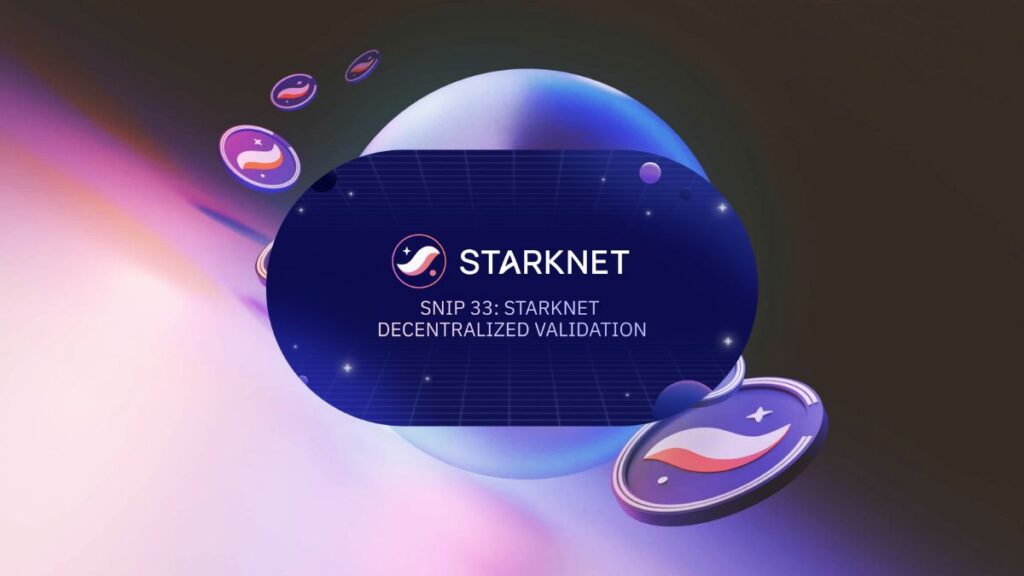TL;DR
- Starknet’s Upgrade: Multi-sequencer plus Tendermint, millisecond pre-confirmations, a short 15-minute mainnet pause for deployment, and alignment with SNIP 33’s path toward a fully decentralized sequencer and prover architecture over future releases.
- Economics: EIP-1559-style fee market with a 3 gFRI minimum, targets throughput within 5% of v0.14, preserves scaled base fees, and keeps validator costs around $1,000 per month to maintain accessibility without degrading user experience.
- Governance: The Top-100 staker committee requires two-thirds weighted signatures, a rewarded proposer must sign for block acceptance, constant per-block rewards apply, and a temporary safety lever has Security Council oversight to protect liveness.
Starknet token holders have approved a sweeping upgrade that begins decentralized sequencing and ushers in a new fee market aimed at faster, fairer blockspace. The plan combines a multi-sequencer architecture with Tendermint consensus and a millisecond pre-confirmation system, with a brief mainnet outage expected during deployment. The move aligns with SNIP 33, which presents decentralized validation as the next milestone on the road to a fully decentralized sequencer and prover stack.
On September 1st, Starknet takes a big step toward decentralized sequencing.
Naturally, the next big question in Starknet’s decentralization journey is validation.
SNIP-33 lays out our initial thoughts on this topic, and we’d love to hear yours 👇https://t.co/rwF7G6Z8uX pic.twitter.com/60jKEUvprg
— StarkWare 🐺🐱 (@StarkWareLtd) August 19, 2025
Decentralized sequencing with Tendermint
Starknet’s Version 0.14 already runs several StarkWare-operated sequencers that agree on blocks using Tendermint, and the new phase expands participation toward decentralized validation. Starknet’s roadmap broadens who can attest and eventually propose blocks, turning internal coordination into a permissionless committee process. The intent is to preserve performance while opening the door to neutral, multi-operator block production across future releases.
Pre-confirmations and fee market

Users will receive sub-second status updates via a pre-confirmation flow that improves UX while consensus finalizes in the background. An EIP-1559-inspired fee mechanism will optimize resource pricing, with a minimum fee of 3 gFRI to stabilize costs under congestion. Requirements for the decentralization milestone target throughput within 5% of v0.14, keeping base fees scaled as new validators participate without degrading user experience.
Validator committee and rewards
A top-100 staker committee, weighted by stake, will attest blocks over a p2p network. More than two-thirds by weight must sign for a block to be accepted, and a preselected rewarded proposer must also sign, or the block is discarded, with a constant per-block reward distributed. The proposer must be known at least 5 minutes in advance. Validator setup costs are targeted at no more than $1,000 per month to preserve accessibility.
Safety lever and rollout
To protect liveness during the transition, Starknet includes a temporary centralization lever that disables signature checks if fewer than two-thirds of expected blocks land in an epoch, allowing StarkWare to continue producing blocks for a limited window. Security Council oversight governs extensions and any future use.
The upgrade expects around 15 minutes of mainnet downtime, and it makes no breaking changes to transactions or RPC while decentralization expands over subsequent versions.










